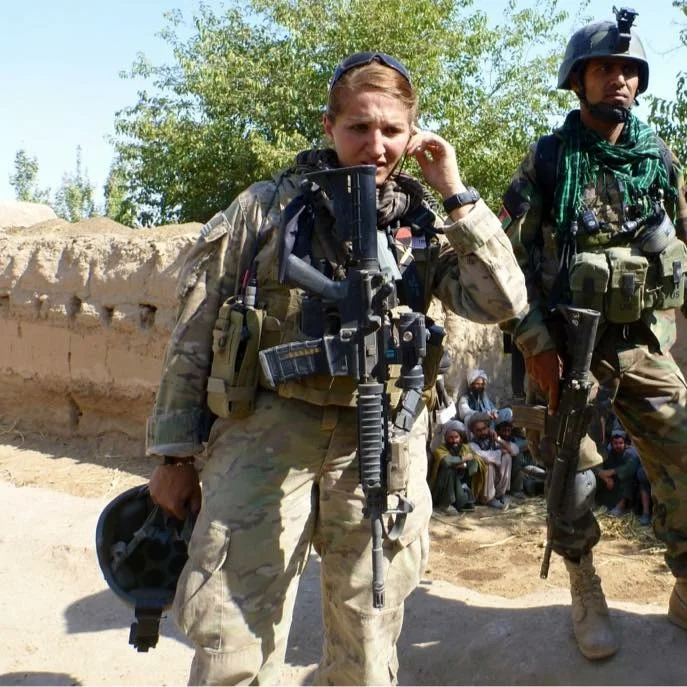GRP 87-We have a very special and powerful episode for you guys. Back on the podcast is retired SARC Dan Brown, and retired Army Special Operations veteran Kevin Tretter. Dan served with Force Recon and the Marine Raider Battalions as a highly trained Corpsman. Kevin started out as a Combat Engineer 12 Bravo then went into Special Forces as an 18 Charlie Engineer Sergeant. He got picked up by a special unit to serve as a heavy breacher. He then went back into Special Forces in the Commanders in Extremis Force (CIF) which is the counter terrorist arm of the Green Berets.
During his time in the CIF he survived a helicopter crash in Iraq eventually retiring after 20 years of service. This episode is important because we discussed Traumatic Brain Injury in a deep and honest way as both Dan and Kevin have brain injuries due to the culmination of training in tight spaces with live rifle fire, explosives, airplane jumps and combative training. They have both received blast injuries in combat. We talked the negative effects of having physical brain damage, and how the government protocols for diagnosing PTSD and TBI are flawed. Discussed the positive effects of Cannabis on healing brain injuries. We talked about some problems and solutions with veterans who don’t need care for TBI or PTSD taking advantage of the government and sucking up resources from service members who need the treatment.
0:00-Intro
4:48-Kevin Tretter’s background. Combat Engineer 12 Bravo. 18 Charlie (Engineer Sergeant) with 3rd Special Forces Group. Worked as a Heavy Breacher with a special unit within the Army Special Operations Command.
8:08- Tretter joined the Commanders in Extremis Forces. Survived a helicopter crash in Iraq.
9:25-Understanding the compounding struggles of all of the concussions. Prolonged exposure, retirement, and realization
14:20- Medical Marijuana and creative output.
20:20-Issues with memory and placing memories in proper chronological order.
25:08-Difference between sports concussions and concussions received by blast waves.
27:00-New York Times article on PTSD being misdiagnosed most likely being TBI. Area’s of the brain damaged by TBI.
32:29-Doctors misdiagnosing TBI, and not factoring the cumulative effects of the blast waves on the brain.
44:05-Servicemembers who claim PTSD falsely, sucking up resources for induvial who need it. Solutions to fixing this issue.
1:02:28-Changing our approach to care for TBI. Potentially changing the name to Post Blast Wave Concussion Syndrome.
1:25:51-Finding a sense of purpose. Getting back to the basics. Utilizing creativity.
1:34:02-The positive effects of Cannabis on the brain, and the politics behind keeping Marijuana illegal when it heals.
Below are links for some of the articles referenced by Dan Brown during the podcast:
https://www.nytimes.com/2016/06/12/magazine/what-if-ptsd-is-more-physical-than-psychological.html
https://www.nytimes.com/2017/05/16/us/military-misconduct-ptsd.html
https://www.nytimes.com/interactive/2017/07/25/sports/football/nfl-cte.html
Hemingway's Brain
http://whqr.org/post/coastline-hemingways-suicide-incorrectly-attributed-alcoholism-and-bipolar-disorder#stream/0
Brain/Vestibular Therapy in Dallas
http://cerebrum.com/
CBD/Canabis for Seizures sited research studies within article
https://www.projectcbd.org/article/medical-marijuana-seizures-sulak-saneto-goldstein
Penn State Neuroscientist and Engineers find link between Seizures and Migraines
http://news.psu.edu/story/332549/2014/10/30/research/link-seen-between-seizures-and-migraines-brain
Hormone therapy for TBI
http://waftbi.org/
Introduction audio is from the NRA series “Patriot Profiles” with Army Special Operations veteran Scot Spooner speaking: https://www.nratv.com/series/patriot-profiles/episode/patriot-profiles-season-3-episode-11-forward-march
Kevin Tretter:
https://warriorwoven.com
https://www.instagram.com/warrior_woven
Dan Brown:
The Dangerzone Podcast on Sound Cloud, ITunes, and YouTube.
https://www.instagram.com/danielthebarbarian
Global Recon:
www.Globalrecon.net
https://www.instagram.com/igrecon
https://www.instagram.com/blackopsmatter
www.twitter.com/igrecon
https://www.facebook.com/GlobalReconPodcast/
Chantel Taylor:
https://www.instagram.com/mission_critical
https://www.instagram.com/altern8rv






